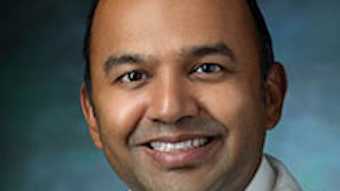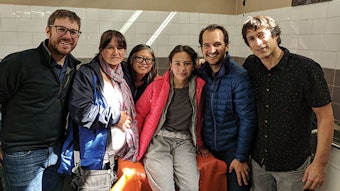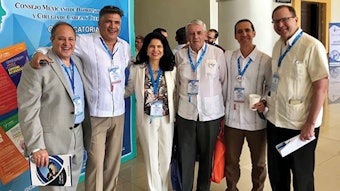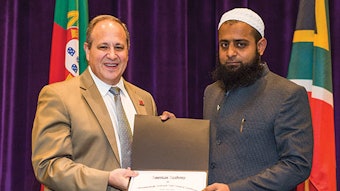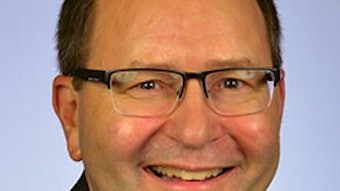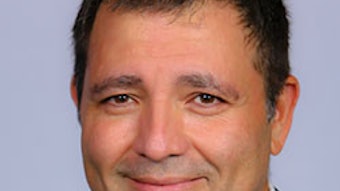Past, present, and future
The Section for Residents and Fellows-in-Training (SRF) is composed of all residents and fellows who are currently training in an accredited program in the United States. The SRF was created in 2000 to increase trainee participation in the American Academy of Otolaryngology–Head and Neck Surgery.
SECTION FOR RESIDENTS AND FELLOWS-IN-TRAINING
The Section for Residents and Fellows-in-Training (SRF) is composed of all residents and fellows who are currently training in an accredited program in the United States. The SRF was created in 2000 to increase trainee participation in the American Academy of Otolaryngology–Head and Neck Surgery.1 Since its establishment, the mission of the SRF has been to link trainees with the Academy’s Board of Directors and Board of Governors (BOG). By doing so, the SRF can disseminate information from the Academy leadership and advocate for issues pertinent to training the next generation of otolaryngologists.
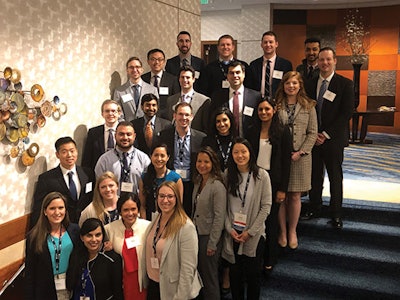 Members from the Section for Residents and Fellows-in-Training in attendance at the AAO-HNS/F 2019 Leadership Forum & BOG Spring Meeting, in Alexandria, VA, April 26-28.
Members from the Section for Residents and Fellows-in-Training in attendance at the AAO-HNS/F 2019 Leadership Forum & BOG Spring Meeting, in Alexandria, VA, April 26-28.In 2003, the SRF created a Governing Council to lead the section. It is currently composed of the Chair, Vice Chair, Member-at-Large, Information Officer, Immediate Past Chair, BOG Governor, BOG Legislative Representative, and BOG Socioeconomic and Grassroots Representative. Each term lasts one year. Applications to serve on the Governing Council become available each summer through the Academy’s website (https://www.entnet.org/content/section-residents-and-fellows-training), and elections are held at the AAO-HNSF Annual Meeting & OTO Experience that fall. Additionally, the SRF has recently created a network of resident representatives from each training program in order to improve direct communication to residents. Any resident can serve as his or her program’s resident representative and can sign up directly on the Academy’s website under the section for SRF.
One of the major initiatives that the SRF Governing Council has undertaken is to understand what issues are important to residents and fellows-in-training. Starting in 2002, the SRF has distributed an annual survey to all otolaryngologists-in-training to gauge differences in residency experiences and solicitate resident or fellow input. The survey is short and consists of two parts; the first section contains questions that have remained stable over time to track trends pertaining to education debt, anticipated practice type, impact of duty hours, training experiences in the different subspecialties, the in-service exam, and pursuit of fellowship. The second section consists of “hot topic” questions relevant to the current trainee experience, such as trainee well-being, effects of fatigue, emotional intelligence, value of research during training, and importance of exposure to the business of healthcare. The survey is traditionally distributed in the spring.
So, what does the SRF Governing Council do with the survey answers? The SRF uses the information to advocate for its constituents. A summary of the results is given to the Academy’s Board of Directors to demonstrate the current concerns and experiences of trainees. Additionally, there have been three peer-reviewed publications that have stemmed from the SRF annual survey responses. These publications have aimed to increase awareness of resident training experiences regarding duty hours, identify resident-perceived most important intern rotations, trends in post-training career choices, factors influencing the decision to pursue fellowship, and educational debt burden.1-3 Thus, the SRF values the opportunity to disseminate the annual survey among trainees and the opportunity to inform the Academy leadership about the current trainee experience.
If you are a resident or fellow-in-training, we welcome you to get involved with the SRF! Make sure to check out our section page at (https://www.entnet.org/content/section-residents-and-fellows-training), our Facebook page (@ENT.SRF), or feel free to email us with any questions or comments at srf@entnet.org.
References:
1 Rosenberg, T. L. et al. Section for residents and fellows-in-training survey results. Otolaryngol Head Neck Surg 148, 582-588, doi:10.1177/0194599813477353 (2013).
2 Roby, B. B. et al. Section for Residents and Fellows-in-Training Leaders: Where Are They Now? Otolaryngol Head Neck Surg 151, 6-9, doi:10.1177/0194599814532904 (2014).
3 Boston, M. Resident perceptions of resident duty hour standards. Otolaryngol Head Neck Surg 134, 537-538, doi:10.1016/j.otohns.2005.10.048 (2006).

